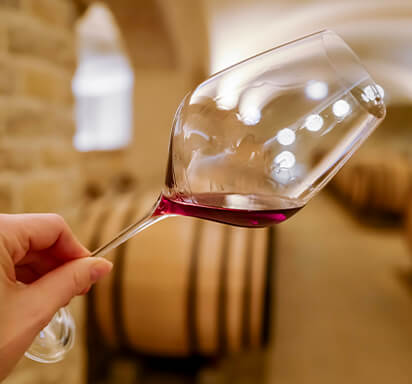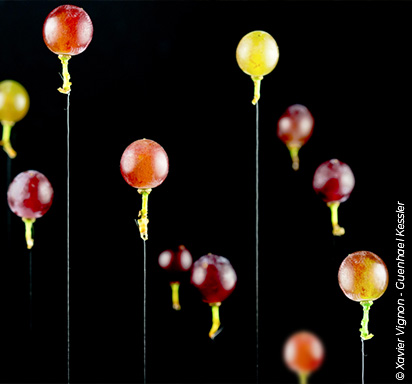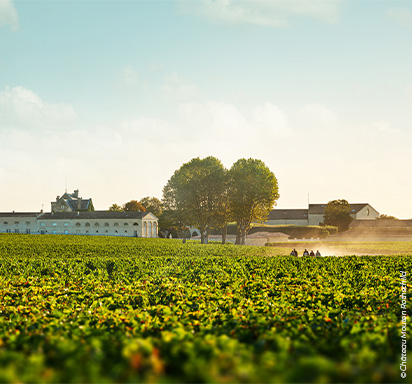Kosher wines | All there is to know and more

Kosher wines are produced based on precise rules and in line with Jewish Dietary laws. Produced all around the world, find out more about Kosher wines and how they are made in our comprehensive guide.
Some facts about Kosher wines
Wine and Judaism have been inextricably linked for the longest time. Wine goes hand in hand with Jewish tradition and culture and fine Kosher wines are synonymous with joy and celebration. Indeed, these bottles are a guest of honor to numerous Jewish celebrations from weddings to Shabbat and bar mitzvahs to feasts during the holiday season. Discover our range of Kosher wines from all over the world; Bordeaux, New Zealand, Italy, Israel and more.
What is Kosher wine?
Stemming from the Hebrew word meaning 'suitable', Kosher wines are produced according to strict Jewish dietary laws under the Orthodox Union, the 'kashrut'.
Is all wine Kosher?
No, winemakers need to abide by a set of rules and regulations and must carry out precise practices for a wine to be considered as Kosher.
Does Kosher wine taste different?
The taste of a Kosher wine does not differ from that of a non-kosher wine. Similar to non-Kosher wines, Kosher-certified wines give rise to an array of different styles and aromatic profiles. Many kosher wines have also received great praise from wine critics all over the world. Thus, the Kosher certification does not in any way indicate the quality of the final product.
Celebrate the Jewish Holidays with Kosher wine
Wine is indeed one of the symbols of Jewish New Year, Rosh HaShannah, in September. It is also served during Passover when four cups of wine are served throughout the celebratory meal, called the Seder.
Kosher wines around the world
Where is Kosher wine made?
Although the historical center of Kosher wines is in Israel, where vines have been thriving for over 2,000 years, more and more winemakers throughout the world are producing Kosher-certified wines. Most Kosher wines stem from the United States, New Zealand, France and Italy.
How is Kosher wine made?
An urban legend states that for a wine to be kosher, it must be blessed by a Rabbi, this is completely untrue. For a wine to be classified as Kosher, it must be produced using kosher practices throughout the entire winemaking process and no non-kosher additives should be added to the wine. The Kosher practices start as soon as the grapes are crushed and following that step, the entire winemaking process must be carried out by a Sabbath-observant Jew.
Mevushal and non-mevushal wines
Mevushal or non-mevushal labels often appear on the labels of a bottle next to the kosher symbol. Mevushal means 'cooked' and refers to the practice of carrying out flash pasteurization. This is when the grape musts are heated for a short period of time at a very high temperature of 175°F and cooled down immediately, to avoid damaging the flavors of the wine. However, if the winemaker produces a non-mevushal wine, the wine will still be considered Kosher but it simply means that a Jewish person has to pour the wine for consumption.
Grape varieties
It goes without saying that grapes are kosher when they are in their natural state. Thus, to obtain the Kosher stamp of approval, all winemaking techniques and additives must also be kosher. Merlot, Cabernet Sauvignon, Sauvignon Blanc... All grape varieties can be used to produce Kosher wines. They are grown, harvested, fermented, aged and bottled in the same way, but under the close supervision of a Sabbath-observant, and a kosher winery looks rather similar to a non-kosher one. As soon as the grapes are crushed, then the kosher practices begin.
What could impact the Kosher status?
As the entire winemaking process is carried out by a Sabbath-observant Jew, from crushing to bottling, the only ingredients that can impact a wine's Kosher status are the additives. Fining agents have evolved drastically over time and today, they can be grouped into two categories: organic compounds from animals and mineral materials.
Organic compounds include egg whites, gelatin, casein, isinglass and mineral materials include bentonite clay, charcoal carbon and potassium ferrocyanide. For a wine to be considered Kosher, it must not include gelatin, casein and isinglass. Vegan wine lovers must be aware of this, and research whether egg whites were used as a fining agent.
How to know if a wine is Kosher?
A common certification in the United States is the Orthodox Union, wines that bear this certification have a ''U'' inside a circle on their label.
Different kinds of Kosher wines
Among Kosher wines, it is crucial to know that there are various sub-categories, learn more about the different types of Kosher wines below:
Kosher wines
Kosher wines are produced according to the rules and regulations of Jewish Dietary Laws, the Kashrut.
Kosher for Passover
For a wine to be labeled Kosher for Passover, it must not come into contact with bread, grains or leavened dough. Thus, most Kosher wines are Kosher for Passover.
Kosher Le Mehadrin
These wines that are Kosher Le Mehadrin abide by the most stringent level of kashrut supervision.
Mevushal wine
These Kosher wines have been flash pasteurized.
Where to buy Kosher wines?
Discover our range of Kosher wines, stemming from world-renowned winemaking regions: the Judean Hills, Galilee, Lombardy, Marlborough and Bordeaux.
Are you looking for a specific bottling? Contact our team and we will help you to find your perfect Kosher bottling for your special occasion!
You may like
Learn about sulfites in wine. This guide explains what they are and explores organic, biodynamic, and natural winemaking approaches, and discusses health and environmental considerations.
3/1/2025Tannins are natural compounds that shape a wine’s structure, texture, & aging potential. They add dryness and astringency, especially in red wines, and enhance food pairings by balancing rich flavors.
1/28/2025Château Mouton Rothschild is a legendary Pauillac First Growth celebrated for its prestigious history, artist-designed labels, exceptional gravel terroir, and powerful yet refined Bordeaux wines with remarkable aging potential.
2/6/2026Château Ducru-Beaucaillou is a renowned Saint-Julien Second Growth celebrated for its “beautiful stone” terroir, meticulous plot-by-plot winemaking, and refined, age-worthy Bordeaux wines crafted by the Borie family.
1/27/2026Château Cos d’Estournel is an iconic Saint-Estèphe Second Growth, famed for its exotic palace, exceptional terroir diversity, and innovative gravity-fed winery producing powerful, elegant Bordeaux wines.
1/23/2026Discover the legacy of Cakebread Cellars, a Napa Valley family winery. From Rutherford vineyards to award-winning wines, the Cakebreads combine craftsmanship, sustainability, and innovation.
10/16/2025
















